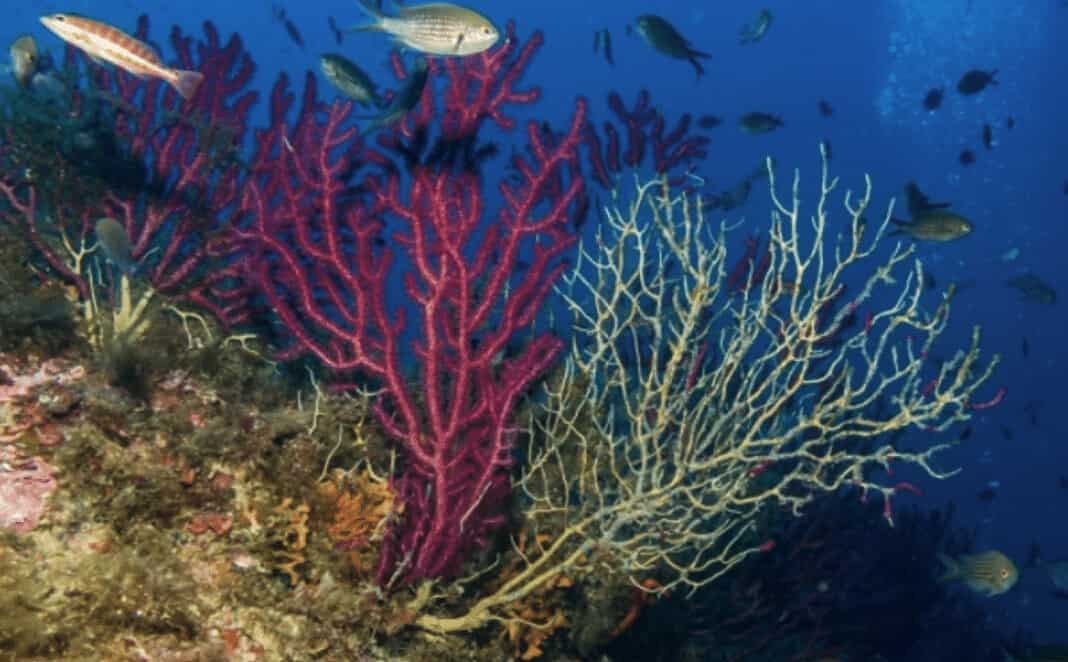Marine heat waves associated with the climate crisis are making it hard for Mediterranean corals to bounce back, according to scientists.
The climate crisis is severely affecting marine ecosystems worldwide, and the Mediterranean Sea is no exception. In particular, marine heat waves associated with the climate crisis are causing mass mortality events in all the coastal ecosystems in the Mediterranean and among the most affected species are corals, scientists have found.
Knowledge of the corals’ long-term resilience is still scarce, despite the studies that analyzed the immediate impact of marine heatwaves on these organisms. These are long-lived species (more than a hundred years in some cases) and with slow “populational dynamics” — i.e. organisms with low growth and recruitment rates — researchers therefore need decades to assess their recovery capacity.
As part of a recent study published in the journal Proceedings of the Royal Society B, scientists from the University of Barcelona analyzed the results obtained in a long-term monitoring on different populations of coral affected by a great mass mortality caused by a heatwave in 2003 in the protected marine area of Scandola (Corsega, France). In particular, they analyzed data on the state of these populations (density, size structure and biomass) collected over 15 years after one particular heat wave.
The results of the study showed that all the analyzed populations tended to collapse since they were affected by the 2003 heat wave. Fifteen years after this event, these populations are practically considered to be extinct from a functional perspective, scientists found.
Daniel Gómez, a researcher at the Barcelona Institute of Marine Sciences, notes:
“We observed an average biomass loss regarding the initial biomass of 80% in populations of red gorgonian, and up to a 93% regarding the studied population of red coral.”
Fellow researcher Joaquim Garrabou adds:
“These data are worrying for the conservation of these emblematic species, and it indicates that the effects of the climate crisis are speeding up with obvious consequences for the submarine landscapes, where the loss of coral equals the loss of trees in forests.”

